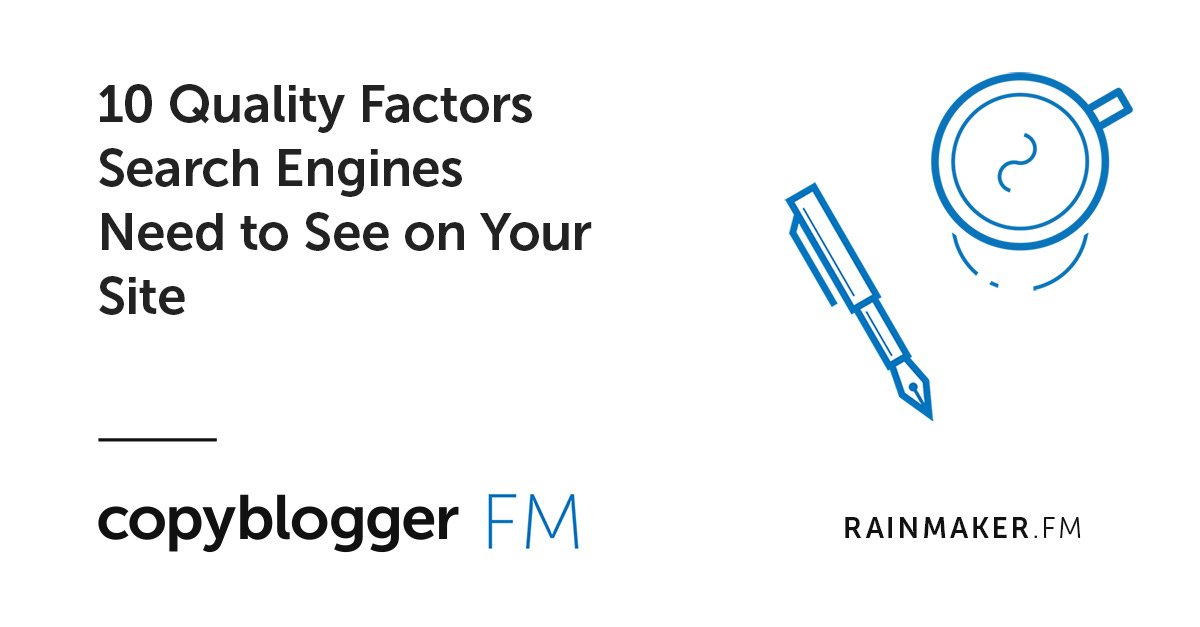I have an affinity for service businesses.
I love when people:
- Recognize that they possess specific skills that can help others
- Invest in training that will help them succeed
- Offer their expertise and problem-solving abilities in exchange for money
But I don’t love when these driven individuals make a certain mistake that invites unnecessary frustrations into their workdays and weakens their reputations.
“Sure! I can do that!”
I understand that it’s exciting when a work offer sounds good.
So, when a potential client proposes a project to Joe Service Business, he’ll immediately respond with, “Sure! I can do that!” (or another phrase with a similar sentiment) before he finds out everything he needs to know about the project.
For example, more information about the project may reveal that he’s not the best person for the job or it’s not actually an assignment he’d like to work on.
When you respond to an inquiry and move ahead with a project too quickly, you operate under the assumption that you’ll figure out the details later, as issues arise.
But your service business can only become respected in your industry and a long-term source of income if you abolish the casual approach to discussing work that runs rampant in freelance culture.
If you want to have an exceptional service business, you cannot casually respond to any form of business communication or informally agree to any business transaction.
To become exceptional, you must become a master of assessing, communicating, and managing expectations.
How to rise above the competition
Competition can be distracting and paralyzing.
It can be difficult to make progress with your business when you’re worried about all the other people who provide similar services and how they might charge less expensive rates than you do.
You may even feel pressure to lower your rates to look more “reasonable” or meet the “industry standard.”
Here’s a thought I had after reading Pamela Wilson’s article, Are You Cheap or Are You Exceptional? How to Price Your Services:
There are always going to be service providers who charge less than you do. The trick is realizing that those businesses do not provide the same quality — and they are not your competition.
Ignore “reasonable” and the “industry standard” and focus on creating an experience for your clients that they won’t find anywhere else — that is the winning difference that will make them choose to work with you.
The “service business as go-to collaborator” model
Being yourself in business is important. You don’t want to abandon your personality and become bland.
But to be seen as exceptional, you need to overcome the tendency I mentioned above where you impulsively respond to a prospective client as if he is your friend.
Instead, you want your prospective client to view you as a business peer.
In order to achieve that, you must:
- Demonstrate you’re dedicated to producing the best-possible final product
- Outline the details you consider when evaluating a new project
- Communicate that clients must agree to your terms of service
Those three actions allow plenty of room for passion and enthusiasm, but they also reveal that you:
- Take your business seriously
- Offer a premium service
- Enforce a clear contract or work agreement
This model attracts prospects who respect you. Over time, you’ll become your clients’ “go-to collaborator” when they have a problem they know your service business can solve.
Initiate a project assessment that communicates professionalism
While gathering information about a project helps you decide if it’s the right fit for your business, it also allows you to tailor your service — before a client has given you any money — in a way that justifies the premium you will charge in exchange for your ongoing exceptional work.
You’ll convey that you’re highly focused on your client’s business goals — and that you may have even given those goals more consideration than he has.
I’m going to give specific examples of factors a content marketer — let’s call her Penelope — might consider when assessing a potential writing project, but these questions can be adapted to any type of service offerings:
- Does the client have a budget for this project? If so, what is it?
- What’s the client’s business goal?
- How does this project fit into the client’s marketing strategy?
- Has the client produced or commissioned similar projects in the past? Did the projects meet his goals? If not, what does he wish would have happened instead?
- Does the client have examples he likes?
- Will the client supply any materials needed to complete the project?
- What’s the client’s desired length or word count? Does it matter for this project? If not, what aspects are more important?
- Does the client intend to make any alterations to the completed project (i.e., edits to the text)? Or, is there any subsequent work the client or other service providers will perform related to this project (i.e., formatting, graphic design)?
- Is this a project that could lead to regular work (daily, weekly, monthly), or is this a one-time task?
- When is the project due — what’s the client’s desired deadline?
A note about deadlines
A client may say he has no deadline preference and then get angry at you when you don’t complete your project by a certain day and time.
Even though that sounds nonsensical, it happens.
If your client is vague about a deadline, set a precise one yourself based on the information you gather about the project. Then tell your client when the project will be completed and meet (or beat) the deadline.
Present terms of service that tip the scales in your favor
Continuing with the example from above, when Penelope Content Marketer presents her project fee, she’ll give her client a terms of service agreement with:
- A detailed description of her goals for the project
- How her service will specifically meet each goal
- A word-count range or approximate length (i.e., an article that’s 1,000 to 1,500 words or a brochure that’s three-to-four pages)
- Her project deadline — the date and time she will return the completed project
- The number of revisions included in her price
- Payment method options and when payment is due
- The best way for the client to contact her if he has a question
- When and how the client will receive a payment transaction receipt
- What will happen if the client cancels the work requested after payment has been made but before the project has been completed
- The extra costs and consequences that will incur if the client has an additional request that goes beyond the terms outlined
Once your client agrees to your terms of service in writing, you have a work contract you can reference if confusion arises.
When you draft your first terms of service, you don’t have to cover every possible scenario that could develop.
Rather, think of your terms of service as a “living” document you can update with:
- Rules to prevent common problems
- Additional details that help your clients understand your offerings
- Processes that will make your workflows easier
Your business and future clients will both benefit from these revisions to your standard terms of service.
Examples from a digital service business
Before I was Rainmaker Digital’s Editor-in-Chief, I had my own writing and editing business that operated completely online — no in-person meetings, no phone calls.
When you focus on your needs as a service provider first, you help ensure that you can take care of your clients’ needs.
It’s like when an airplane is in distress and you’re instructed to first put on your own oxygen mask before you help others.
Part of my terms of service and payment policy for editing work included:
- My business hours: when I would reply to emails, send invoices, and return completed projects
- A 24-hour time frame when payment needed to be made after I sent an invoice, which allowed me to begin all my work with confidence, rather than wondering if a client forgot about my invoice or when he would pay me
- The financial penalty that would incur if a writer wanted me to review a different version of a document after payment was made and I had already started working
Clients were thoroughly informed about doing business with me, and I had stress-free systems in place that communicated my needs and boundaries as a service provider.
Want more information about pricing your services?
If you haven’t already read the first installment in our pricing series, check out Pamela Wilson’s article, Are You Cheap or Are You Exceptional? How to Price Your Services.
Beth Hayden wraps up the series with a simple template for pricing your services in 5 Stress-Free Steps for Pricing Your Services.
Take your writing business to the next level with our Certified Content Marketer training
If you’re interested in becoming a Certified Content Marketer, add your email address to our waiting list below to be the first to hear about when our Certified Content Marketer training program reopens.



![[08] 10 Goals that Make Content Marketing Meaningful](../../rainmaker.fm/wp-content/uploads/2017/07/sites-008.jpg)


Stephanie, this is AWESOME information. As a social media manager with a design background, it is tempting to agree to take on all sorts of projects. I’ve realized that this a major disservice to myself (and to clients!), when I focus on what I’m really good at- my clients receive exceptional work, and everyone is happy!
Thanks, Amy!
It definitely takes time and experience to narrow down the work you really want to focus on. Sounds like you’re in the right groove now!
Sometimes I read information at the right time in my life, and this time is one of those times. Thank you.
I think as starting out freelancers or single business owners, we tend to cut corners when mapping out our business agreements because we’re hungry for business.
This is a good reminder to act professional and remind yourself that you “belong at the table.”
Well put, Jayne!
Super helpful article. I can see lots of applications for this advice – I’m sure I’ll be referring to this article again and again. The information around deadlines was particularly useful. Thanks so much for sharing!
I think a lot of it really boils down to being honest and creating a position of preeminence; like Jay Abraham says. If you firm isn’t right for the job or you don’t have experience in a particular area, be up front and honest with the client.
Don’t try and fluff your way through a job you can’t handle.
They will respect you more for being honest.
I have gotten a few jobs by telling a client I may not be the guy for your project as you see it, but maybe this other avenue may be a better fit for your business; if it really is better for them.
And, I also can attest to the fact of setting a deadline even if the client says it doesn’t matter. I’ve been in too many projects where the client says it doesn’t matter and a couple weeks in they are wondering why you’re not done yet.
I always force myself to a time frame and have the client agree on it. It always saves headaches in the end.
Kevin
Thanks for the insights, Kevin!
Offering any professional service benefits from the professional having at least some basic sales skills. You can offer quality service but if you don’t have the ability to sell yourself as the consummate professional, no one will know how good you are. Everyone thinks they offer the best service and can document this but often it is hard to set yourself apart just based on documentation (work examples.) In today’s gig economy competition is fierce, and the people who stay busy, no matter what service they provide, learned how to market and sell their service. You should always endeavor to provide quality service, but as Stefanie says, you have to craft a winning pitch. I wish she could have shared a few examples of her winning pitches to prospective clients.
For whatever its worth here is one suggestion – listen carefully to understand your prospective clients’ needs and expectations; ask questions that genuinely show interest and comprehension of what those needs and expectations are; and, then close the sale by explaining how you are uniquely qualified to meet those needs and expectations. If you can’t close the sale, then immediately go back and ask more questions to find out what need or expectation you failed to satisfy in your initial closing pitch, address it and then try to close again. Often you have to deal with gatekeepers and it is challenging to get past them to talk to the decision maker. Again, maybe Stefanie has some suggestions or tactics she has used. Good luck everyone!
Can anyone point me in the right direction to find a terms of service and/or work agreement that can be imported into Microsoft Word? I prefer to start with a basic framework that I can customize as needed. I also prefer not to hire an attorney to draft a document that needs to be customized each time. Thanks!
Don,
Thanks for highlighting that successful service providers need to excel at selling their services in addition to performing excellent work.
AWAI has an inexpensive set of docs and templates you can use for contracts, etc. I think it’s around $30. I’ve bought their stuff before and been happy with it. They have a full refund policy if you’re not. Might be worth a look for you.
I found it. Thanks Jody!
Hi Stefanie
Some good advice there. I think the biggest problem small service business owners face is themselves. Setting oneself up as a professional respected and valuable provider is often down to setting the right frame of mind. We often believe that being the cheapest is the best policy, and we also often believe the terms and conditions turn buyers off. Both are flawed ideas.
Like you said, offering a clear and enforceable work agreement and deciding that lower priced offerings are not your competition are two critical components.
I listened to an awesome audio book a couple years ago that I love to tell people about, it’s called “Selling The Invisible” by Harry Beckwith and it details how to market and sell services. Have you read/listened to it?
– Larry
Larry,
I’ve never read “Selling the Invisible” — thanks for the recommendation! Great title.
It definitely sounds like you agree with the philosophy Pamela Wilson outlined in her post last week: “Are You Cheap or Are You Exceptional? How to Price Your Services”
It was the first article in this pricing series.
This is a very good article.
I’d add a couple of things:
-we give a strict deadline to accept an offer. We warn clients first and let them know. We can’t work with clients that can’t make decisions and don’t think we’re the obvious choice. If the time expires, we don’t work with them for a minimum of a year., and I’m disinclined to work with them anyway.
-We have some commitments to understanding that a delay in feedback on their part isn’t a 1:1 situation on our part. Meaning if they don’t get out of pre-production on Friday then it may be an entire 2 weeks before we can get them into production. This has to be signed off on before we work with them (or else our model fails).
Anyway, fantastic article.
Thanks for sharing, Christopher!
Wonderful information! However, I just wanted to add on to the conversation that at networking events, you only have a few minutes to explain what you do and what your business does. I think an elevator pitch is appropriate at that time, and that it’s very important to know. An elevator pitch should only be 30 seconds to a minute long, and should cover the basics of what you do and how it can help the person you are talking to.
Absolutely, Arooj!
Thanks Stefanie for sharing your perspectives. Being engaged in business, I realized that keeping eyes on your competitors is pretty crucial, but when it comes to dealing with prospects, we must strive to create an experience that they can’t get from anywhere else. If we do this for them, rates won’t matter.
I absolutely love the “are you cheap, or are you exceptional” portion. I had to fight a little bit with my business partner on this one in getting the “exceptional” mindset. We actually do offer exceptional service, but at times, your brain will fight with that idea if you have any subconscious limiting beliefs. Lucky for me, I’ve been blessed with great coaching Great article Stefanie!
Great article Stefanie!
What a great article Stefanie. I always strive for exceptional as it pays off much better in the end!
This information appears very useful for me, as I will soon be starting a music lessons business.
Thank you for your knowledge and expertise!
This is me – this is ME! It happened again in a meeting this week. I got so excited hearing about a potential client’s ambitions for using brand storytelling in a website makeover that I just focused on the stories and how we might tell them. And as much as I enjoyed our discussions, I came away from it feeling terrified because I knew there was no clear brief, no discussion of scope and no agreement on fees. And worst of all? I didn’t know how to bring the project to the start line with those parameters established.
As a newcomer to marketing (ex TV journalist) I’ve been driven by the story opportunities I see, and I didn’t know how to incorporate the necessities of business. This helps A LOT. Thanks.
Thanks for the detailed example, Sherene! It’s so easy to get carried away with the creative aspects of a project.
I’m sorry that had to happen, but it’s great that you recognize your opportunity to fine-tune your approach going forward.
I love this series of articles, really!
Being in the service business as a wellness practitioner and life coach, it’s hard work to differentiate yourself from the masses.
I agree with don mead, everybody promotes himself through a website and they can write whatever so that making it for a prospect even harder to choose.
Even how clients dictate price because that’s what they know and pay everywhere.
To grow your exceptional niche business takes time, perseverance and client loyalty.